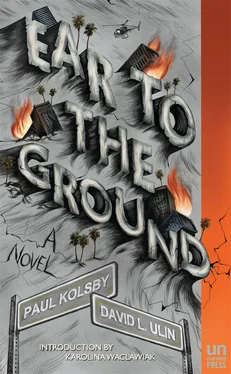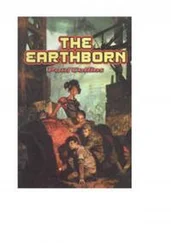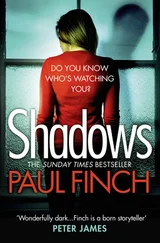“I’m selling the building.” Navaro told them as they came down his path for the last time. “Was on the phone all morning.”
“Wow,” Grace said.
“Thing is …” Navaro looked serious. “Lemme ask you a question.”
Charlie and Grace both leaned forward.
“I’m in a moral quarry .”
Grace smiled at Navaro’s mistake, and Charlie pinched her discreetly.
Navaro went on. “I think the guy thinks there’s four apartments in the building. But he never saw it. Y’know?”
“You mean he doesn’t know about the duplex?” Charlie asked.
Navaro shook his head. “But you liked it, din’t ya?”
Charlie smiled. “Sure I did.”
Then Navaro turned to Grace, gave her a hug, and told them what the doctor had said about his heart. “I’m gonna fucking start spending money like crazy!” he laughed, and Grace decided, contrary to prior judgment, that the man’s life hadn’t been lived in vain.
Eight hours later, Charlie and Grace pulled up to the house they’d rented, sight unseen, outside Tucson, Arizona, where nobody they knew had ever been.
Grace unpacked as the sun set across the desert, the fading pink light etching the ragged slopes of mountains in silhouette against the sky. She got up and stood in the back doorway, leaning against the jamb. Then she felt the heat of Charlie’s presence and turned. He smiled, his shoulders looser, his posture more relaxed than it had been in a long time.
“How you doing?” he asked, and brushed a lock of hair from her eyes.
“Just fine.”
The house was small and cozy, a ramshackle wooden cottage with an empty fenced-in front yard of desert scrub. There were no neighbors for miles, and the only signs of civilization were the telephone poles that ran alongside the little two-lane blacktop. It was a quiet place, Grace thought, isolated, where she could take off her clothes and run naked if she wanted. “Arizona? Are you sure ?” her mother had asked. But Grace had never been this sure of anything before.
She took in the mountains, and drew a deep breath of desert air. Then she wrapped herself in Charlie’s arms.
All day long, Grace had been too excited to eat, but then Charlie suggested a nighttime picnic to inaugurate their move. Great, she thought, a picnic. Charlie took the odds and ends of food they’d brought from Los Angeles, threw them in a shopping bag, and grabbed a bottle of wine.
They drove for a while into the desert, where the sky was filled with pinwheels of stars and the moon hung low and large. At the edge of a dry riverbed, Charlie stopped the car and consulted a particularly detailed map Grace hadn’t even noticed he had.
“Where are we?” she asked.
Charlie flashed a strange grin and got out of the car. He spread a blanket and laid out the food.
After an hour, Charlie reached out his hand and led Grace into the riverbed, where, she noticed, the ground was broken in long jagged lines.
“What are we …?”
Charlie didn’t say a word. Instead, he consulted his watch, took her by the shoulders and positioned her precisely, putting his arms around her to make sure she didn’t move.
In the desert chill, Charlie’s warmth was nice against her skin. Grace felt her heat begin to rise. She leaned upward and kissed him, pressing into the curve of his body.
Then the air filled with rumbling, and the ground began to move and swell. “What the fuck?” Grace said.
“It’s just a 3.3,” Charlie told her. “But I thought it might be fun.”
Slowly, the shaking stopped, and Grace felt herself thrust against him completely.
“Fun?” she said. “I know something else that’s fun.” She curled away a little, and reached for the buckle of his belt.
At home later, after Charlie was asleep, Grace lifted up the sheets and climbed quietly out of bed. Her skin gleamed silver in the moonlight, and she padded barefoot into the front room. The earthquake had set a charge in her, and she couldn’t sleep. Maybe if I wrote about it, she thought, and picked up an old spiral notebook. She shivered at the touch of her naked back against the cold wooden chair.
For a moment, she stared at the page’s empty lines. Then she cracked her knuckles and began.
“Los Angeles is the only major city in the world, thought Charlie Richter, heading east on Sunset in his red Rent-a-Corsica, where everybody has to drive. …”

Kobe, January 17,1995
Dear Grandfather,
It was a beautiful night. That’s the first thing, the thing no one will remember. The dawn was still an hour off and the stars sparkled in the winter sky like ice. There was a dusting of frost on the ground and my footsteps made a crunching sound when I walked into the park. As I set up my equipment my breath hovered before me in a cloud. It was so crisp and clear I began to doubt myself; back home in California, as you well recall, they talk about “earthquake weather” and how the ground starts shaking only when it’s hot and dry. Then again, it hadn’t been hot for Loma Prieta or for Northridge — just the dreadful symmetry of plates slipping, energy fields shifting, a force more powerful even than history.
The conference was a bust. All along, I knew it would be. But what else could I do but try? For weeks beforehand I’d had these nightmares, these visions, the city collapsing in slow motion to a soundtrack of piercing, knife-like screams. Every time I closed my eyes, it all came back again. So I thought, what the hell, your name is Richter. If anyone can make them listen, you can …
But they shouted me down and told me no one could predict an earthquake and that only a fool would try. What evidence did I have? How could I explain it? By telling them you were helping me? Verifying my findings and keeping me on track? These are men of science, after all, blind to anything that can’t be proven, blind to anything suggesting the shadows behind the light. But you, Grandfather, you are the shadows. You may be dead but you are also living, tracelike, within this computer — your mind embedded in its circuitry, your ideas thrumming through its wires.
No, you are the one thing I can’t explain. The one thing … So I walked out of that conference hall, went back to my hotel, and got ready to meet the dawn. I sat there, watching numbers scroll green and black across my screen. Five-forty-five a.m., January 17—virtually a year to the day since Northridge — the coincidence was striking. Evanrude had laughed when I announced the date, as if the whole thing were a joke or a cynical play for attention to predict a killer quake on the anniversary of another one.
But I knew it was coming. That night, in the hotel room, I saw buildings collapsing and heard the muffled roars of people trapped beneath the debris. Finally, I went down to the bar and drank a carafe of sake but, rather than calming me, it settled hot and sticky in my stomach and filled my throat with bile. At three a.m. I packed up my equipment: video camera, portable seismograph, infrared binoculars, laptop, electric lantern, and a folding camp chair. Now I could ride out the carnage, if my own excitement or the force of the tremor didn’t shake me to the ground.
I remembered a moment as a boy, out walking with you, when you’d picked up a handful of gravel and told me, “This is the only thing that’s real. Everything else is just wave form and energy, but this — is solid .” And you let go of that gravel. We watched it fall through your fingers like lost time, spreading along the ground. That’s why earthquakes fascinated you, because they represented solid matter turned fluid, but rather than seeing that as a contradiction, you said it just expanded our definitions of what solid and fluid really were. There was no reason solid states must be static; earthquakes merely illustrated the solidity of the earth reconforming itself. It was like a Gaia theory, the planet as living creature, even though you would never have admitted to believing in any idea as touchy-feely as that. As I looked for a place to observe the entire city, I thought about you, and asked you, and the earth, to keep me safe.
Читать дальше













